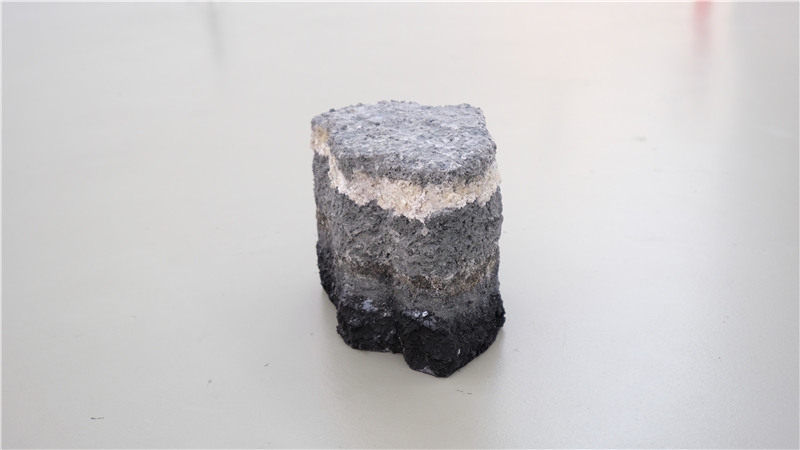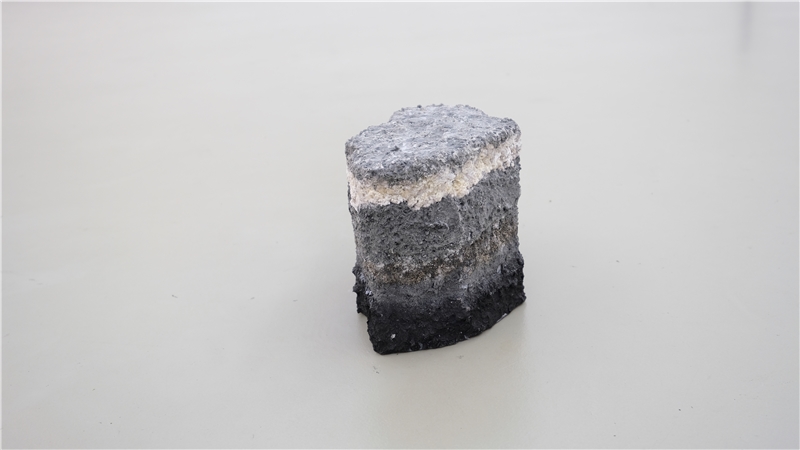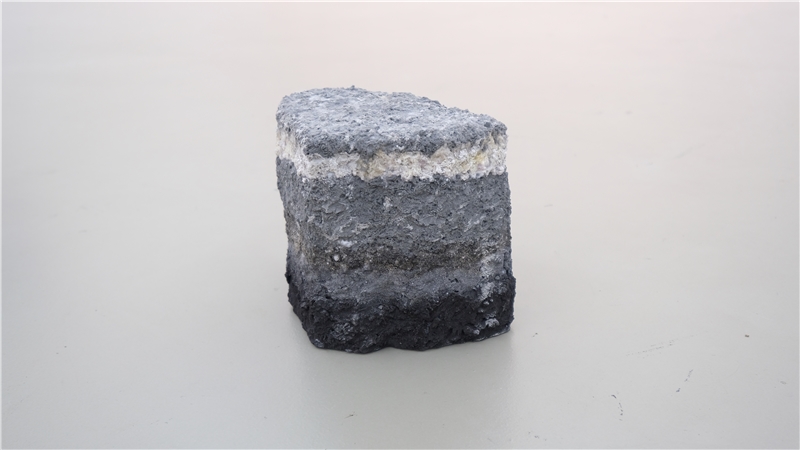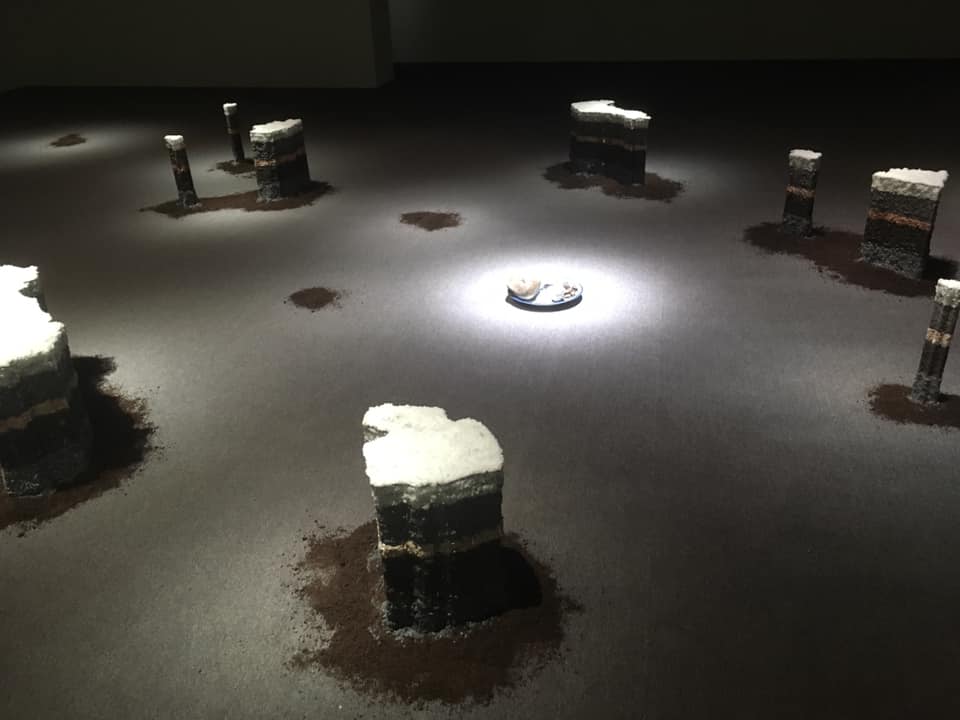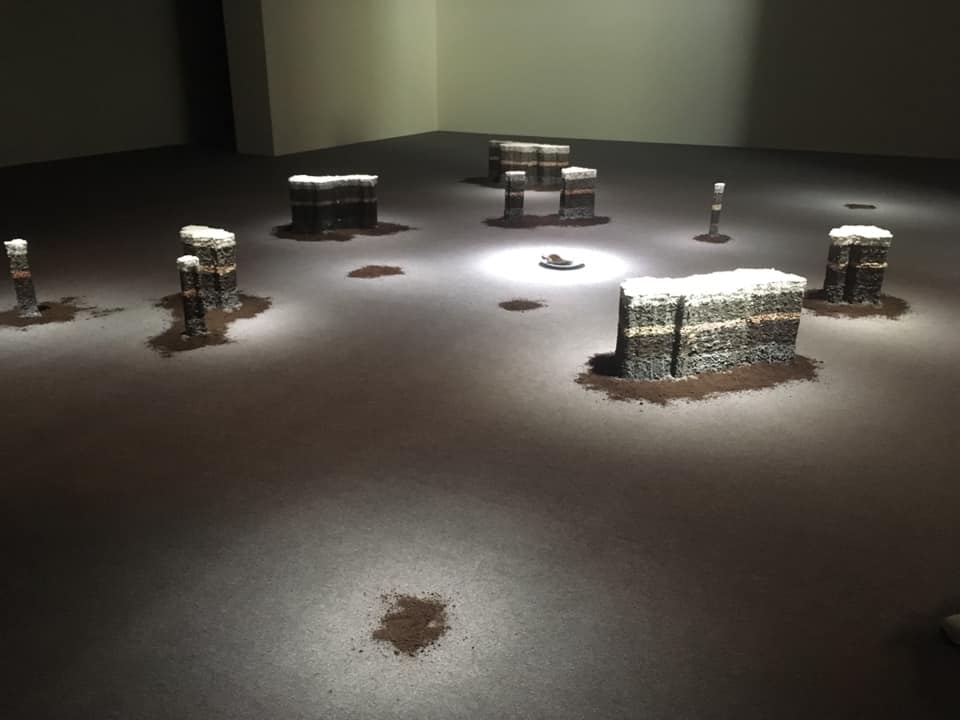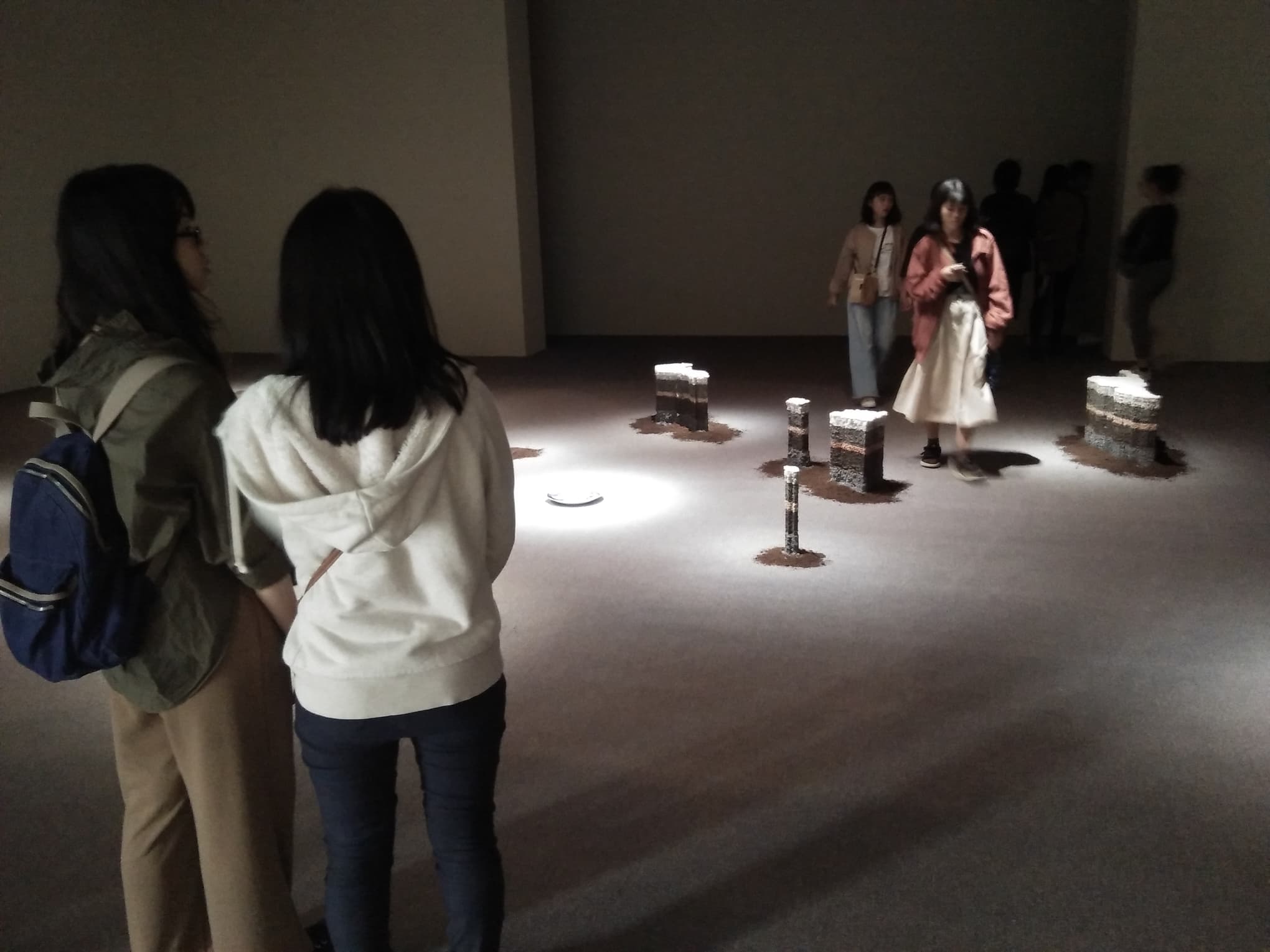News
Anthropocene in Taipei Biennale
Anthropocene, 2018
The term ‘Anthropocene’ has become increasingly popularised since it was coined by Nobel Prize-winning Dutch atmospheric chemist Paul Jozef Crutzen at an international conference in 2000, to describe the way in which human activity on Earth as has become so significant that it has shaped a new geological epoch. Although human civilization is less than a million years old, its chemical residues—including coal ash, lime, heavy metals, waste plastic fragments and pollution—are deeply deposited in the Earth’s soil horizons, potentially impossible to remove, where they will remain indeterminately. Therefore, the geological marks of human history may in future be exposed, in exactly the same manner as natural fossils are unearthed in an archaeological site. Ruangsak Anuwatwimon’s sculptural installation, Anthropocene, physically illustrates this perspective.
Anthropocene is a rolling landscape comprising of twenty delicately coloured overlapping mounds of polluted soil, collected from sites across Taiwan, with ten kilograms of dirt gathered from each location. This seemingly beautiful and vibrant terrain is actually a map of toxic land in Taiwan. However, this dystopian landscape is not unique to Taiwan, and instead depicts an incredibly common phenomenon seen around the world. This has prompted the artist to ask, ‘if mankind is the cause behind the disasters unfolding in this universe, are visions for a wonderful life impossible to fulfill?’
Deeply fascinated by science and nature, Anuwatwimon is extensively involved in environmental conservation activity. The artist hopes to explore issues of regional land ethics and human morality through this artwork, and to encourage wiser and more positive human environmental action.
